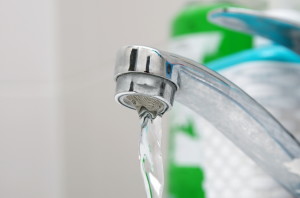What You Can Do About Low Water Pressure
By Wilmer Romero on Nov 12, 2015 in Uncategorized
Low water pressure rarely just happens. More often than not, it’s a problem that builds up over time, and one you become increasingly aware of until, all of a sudden, it’s downright annoying and problematic.
You know, like when it feels like you’re showering under a squirt gun because water flow has been reduced to a trickle. Or when you realize that you could read a novel in the time it takes for your washing machine to fill up.
Those are two common symptoms of low water pressure – now, let’s have a look at a few of the more common causes, and what you can do about it.
Any kind of water leak – hidden or out in the open – can cause a reduction in your water pressure. There are, however, ways to detect a hidden water leak before it can cause structural damage or a major build-up of mold and mildew. Your nose will tell you, for example, if mold is accumulating somewhere behind the scenes. Or, maybe you discover black mold spots or discoloration on a ceiling or walls. Another way to detect a hidden water leak is to take a water meter reading at the start and end of a full day, one during which you don’t use any water. If the meter has recorded significant water consumption anyway, that’s the very moment you should call an experienced plumber to find out the exact location and extend of the leak. Trust us, this is an issue where much more than your water pressure is at stake.
Sediment Inside Your Pipes
When your plumbing was first installed – and assuming it was installed correctly – water flowed effortlessly through the pipes from Point A to Point B. Smooth sailing. But over time, things can change that, once again, can result in low water pressure. If, for example, your water supply is high in magnesium and calcium, eventually those minerals can and will leave behind a residue that, as it expands, will allow less and less water to pass through at any one time. Or, your pipes can be infiltrated by dirt and other debris from a crack or break in the municipal water pipes.
Cracked and Leaking Pipes
Water pipes weren’t made to last forever. Even PVC piping can come apart at the seams – literally. And all it takes is one crack or leak that allows water to escape (and debris to enter your pipes) for your water pressure to be affected.
Problem at or with the Water Company
It’s also possible that the source of your low water pressure isn’t in your home or on your property. It could, in fact, reflect a leak in the water main or some other problem either at or associated with your municipal water company. Don’t hesitate to call to see if they’re aware of a problem on their end – at the very least, you can check that possibility off your list.
For an expert diagnosis of your low water pressure problem, contact Your 1 Plumber today.


Post a Comment
You must be logged in to post a comment.